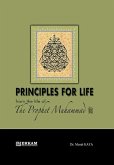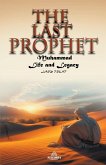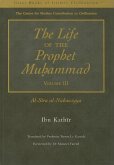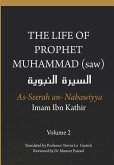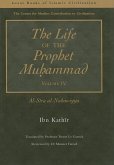An exploration of the relationship between Islam, Judaism, and Zionism, focusing on their spiritual and ideological underpinnings. The book is rooted in the belief that Prophet Muhammad's life offers guidance for Muslims on how to engage with the world, especially in facing ideologies that challenge Divine principles. By examining Zionism's rise and the decline of Islamic missionaries, the author emphasizes the need to restore the core mission of inviting humanity to Islam. The introduction reflects on the essence of the Prophet's life-his dedication to dawah as an embodiment of optimism and devotion. The decline of dawah in today's Muslim world is seen as a tragic irony: Muslims maintain the outward forms of the Prophet's practices but have largely forgotten the spirit of his mission. This neglect contrasts with the rise of Zionist propaganda, which has been highly effective in spreading its ideology. Chapter 1, "The Disappearance of Dawah," explores how the early Muslim community was united by their commitment to spreading faith, while dawah today has become an afterthought. This decline is attributed to both internal forgetfulness and external suppression by colonial and political forces. The author highlights the contrast between the flourishing of Zionism, supported by financial power, and the weakening of Islamic outreach. Chapter 2, "A Billion Converts to Zionism," examines the appeal of Zionism for Jews and Christians. Zionism promises an unconditional return to the Holy Land, free from the spiritual obligations demanded by God. The narrative, combined with Christian Zionist influence, has drawn millions to the ideology. The author compares it to Communism, noting the shared secular roots and dangers, especially given Zionism's apocalyptic elements. In Chapter 3, "Humbling Zionism's Superiority to God," the author argues that Islam fulfills the promise made to the Jewish people-a promise conditional on obedience and faith. Islam confirms Jesus as the Messiah and serves as the culmination of Divine revelation. The author encourages Muslims to engage Zionists in respectful dialogue, taking lessons from the Prophet's dealings with the Jewish tribes of Medina. Chapter 4, "Heredity of Zionist Superiority," addresses the narrative of superiority perpetuated by Zionists, tracing it back to Sarah, Abraham's wife. The author contrasts Sarah's actions with the virtues of Hagar, the mother of Ishmael, suggesting that the resentment and insecurity that began with Sarah contributed to the exclusivist mindset of Zionism. The chapter calls for empathy toward the historical pain experienced by Isaac's descendants and advocates for mutual respect and compassion. The conclusion, "Clinging to Exclusivity," discusses the dangers of Zionist exclusivity despite the global acceptance of Jesus and Prophet Muhammad. The author criticizes the dual covenant hypothesis-the idea that Jews remain chosen without accepting Jesus or Muhammad. This exclusivist ideology is portrayed as a response to millennia of suffering, leading to apathy towards both non-Jews and God. The author argues that unconditional empathy is essential to break the cycle of resentment and foster genuine dialogue. Revival of the spirit of dawah and the emulation of the Prophet Muhammad's mission-not just through outward practices but through genuine engagement. This revival, the author believes, is vital to counter Zionism, restore spiritual strength to the Muslim community, and create a world where Divine promise and human coexistence are in harmony.
Bitte wählen Sie Ihr Anliegen aus.
Rechnungen
Retourenschein anfordern
Bestellstatus
Storno



